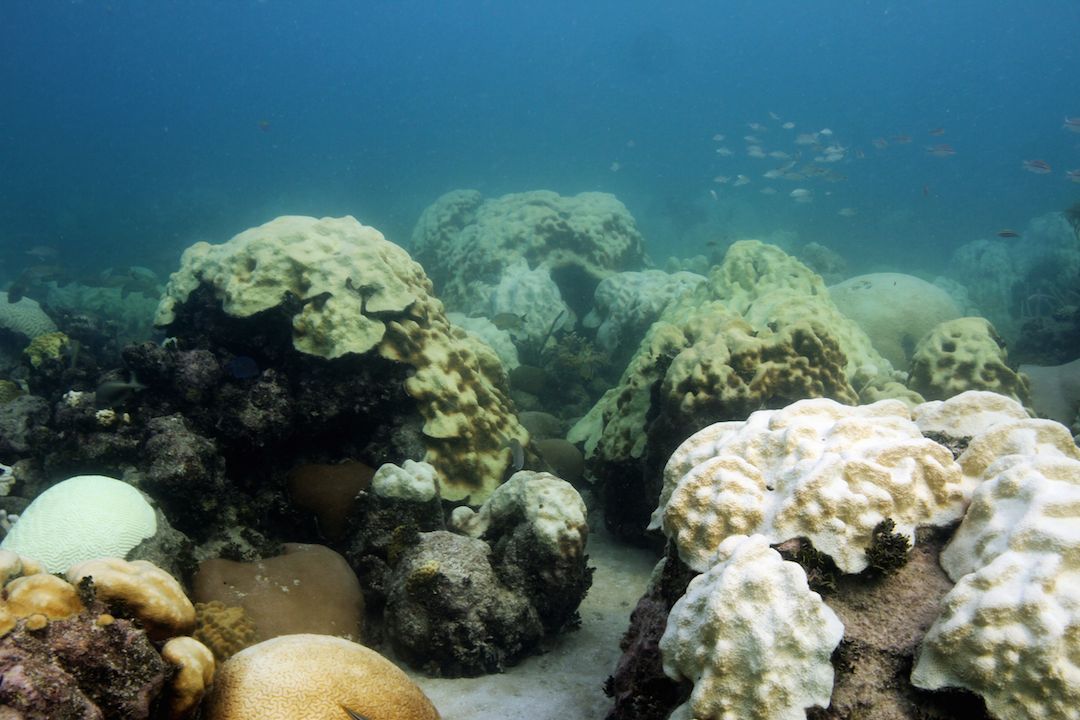While tropical cyclones can dramatically impact coral reefs, a recent study reveals their passage also exacerbates ocean acidification, rendering reef structures even more vulnerable to damage. Calcifying marine organisms such as corals that thrive in alkaline-rich waters are increasingly imperiled as seawater becomes more acidic due to the ocean’s uptake of carbon dioxide. The detrimental effects upon these organisms have been documented, but less is known about how reefs might react to ocean acidification when coupled with an additional stress factor such as a tropical cyclone.
To assess how reefs might respond to such a scenario, coral researchers Derek Manzello, Ian Enochs, and Renee Carlton from the Cooperative Institute for Marine and Atmospheric Studies at the University of Miami’s Rosenstiel School and NOAA’s Atlantic Oceanographic and Meteorological Laboratory, along with researchers from the University of Washington and NOAA’s Ocean Acidification Program, collected data from reefs in the Florida Keys before, during, and after the passage of Tropical Storm Isaac in August-September 2012. Their findings appear online in the Journal of Geophysical Research.

The team analyzed seawater carbonate chemistry and environmental data from Cheeca Rocks and Little Conch Reef, both coral monitoring sites, as well as data from a coastal marine automated network station at Molasses Reef.
They found that Tropical Storm Isaac caused both an immediate and prolonged decline in seawater pH and carbonate saturation state at the two coral reef sites studied. The post-storm pH levels were the lowest recorded values to date from over two years of high-resolution data measured at the Cheeca Rocks ocean acidification monitoring site, and this depression in pH lingered for more than a full week.
Prior concerns regarding ocean acidification and coral reefs assumed carbonate undersaturation would not occur at reefs in the foreseeable future due to their location within the highly supersaturated tropical oceans. However, the study demonstrates that carbonate undersaturation at reefs will occur from even the passage of a modest tropical storm when coupled with ocean acidification.

With climate models projecting a steady increase in the rate of ocean acidification, along with stronger, more frequent tropical cyclones, the future for coral reefs thus appears bleak. In the coming decades, tropical cyclones could depress carbonate seawater saturation levels to such an extent that reefs will undergo periods of post-storm dissolution, weakening coral reef frameworks and worsening the widespread ecological and economic consequences of the coral reef crisis.